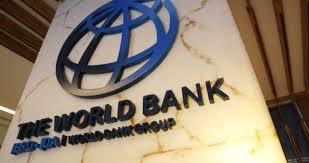The World Bank Group has announced the restructuring of the Nigeria Digital Identification for Development (ID4D) project facility of $430 million to ensure complete disbursement of the loan pledged by the financiers.
The Bretton Woods development finance institution hinged the restructuring of the project on the stance of the co-financiers, namely French Development Agency (AFD), and the European Investment Bank (EIB), which threatened to cancel the funding if the World Bank ceased to be the implementor of the project as from the end of June 30, 2024, the initial closure date for the project.
Under the financing terms for the project approved by the International Development Association (IDA) in 2020, the AFD is to release $100 million and the EIB is to fund the project with the sum of $215 million, while the IDA, the private arm of the World Bank is to provide $115 million.
Justifying the restructuring of the project’s funding, the World Bank clarified: “Both co-financiers have indicated that they will cancel their financing if the World Bank is no longer the lead financier and implementor of this project.
“As such it is critical that the World Bank extends the closing date of the project to allow continuity across all co-financiers and avoid any disruptions to good progress made so far and to safeguard the positive impact it has had on Nigeria’s identity infrastructure”, it added.
According to document on the project, the World Bank stated that in view of the restructuring the project’s closure date had been extended to June 30, 2026.
Specifically, it stated that the extension of the date became imperative in order to respond to the increasing demand for an inclusive and credible digital ID system that will strengthen the transparency, efficiency, and effectiveness of governance and delivery of public services and programmes in the country.
Apart from missing the NIN enrolment target in which the country was expected to have issued 148 million NIN by June 2024, Nigeria also missed several other technical benchmarks outlined in the project implementation schedule.
According to the World Bank, key activities under the Component 2 of the project (Establishing a robust inclusive foundation ID system) aimed at enhancing the resilience, security, and reliability of the Nigeria Identity Management System (NIMS) have suffered setbacks
The Bretton Woods institution further clarified: “For example, the Automated Biometric Identification System (ABIS), which processes all biometric data (finger print and facial), is almost at full capacity as it currently holds 80 million records.
“It is essential that the ABIS capacity is extended to accommodate 250 million enrollments considering that the Nigerian population is now 210 million”, it added.
The bank, however, noted that the associated system upgrade process had commenced and was estimated to be completed by March 2025.
Under the restructures project, the World Bank noted that launching some activities under the subcomponent 2 was no longer feasible due to limited timelines, and as scuh a few activities would be cancelled.
It stated: “In that context, and considering the limited time and resources available, it is proposed that the following activities be cancelled: (i) collaborating to build links with a digitized civil registration; (ii) conducting and financing a capacity assessment and institutional mapping of National Population Commission (iii) creating a national civil registration database with interoperability with the NIMS and (iv) the development of new mechanisms for continuous digital birth registration with NIN generation.
“The funding that was allocated to these activities will be utilized for the development of the new national identity management system (NIMS)”, the bank added.
Also, the World Bank stated that Indicators related to the number of offices of the Nigerian Government abroad equipped to register Nigerians for NIN will be deleted as the government is now prioritizing issuing NIN within Nigeria in order to ensure access to services for the poor and vulnerable.






